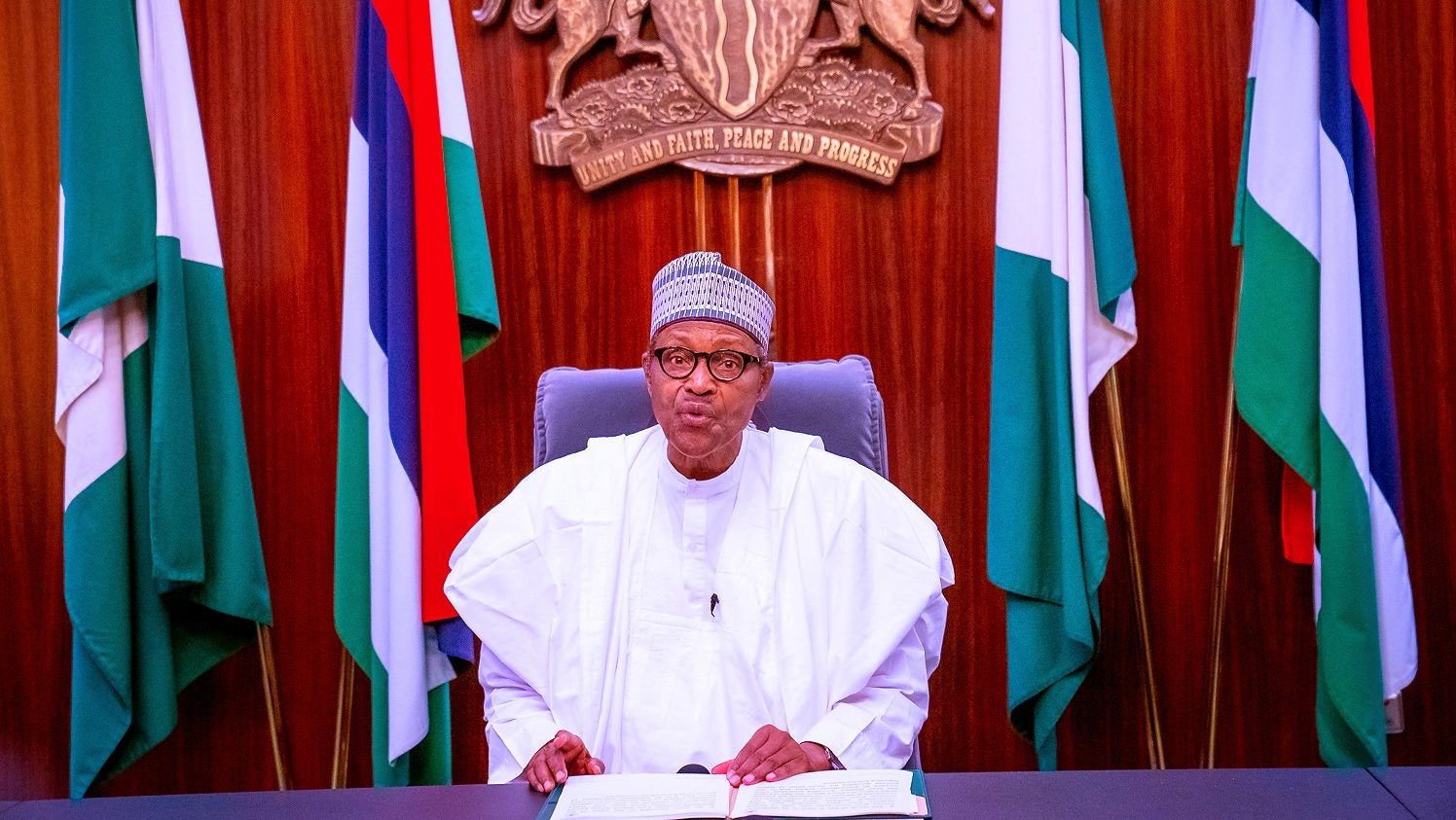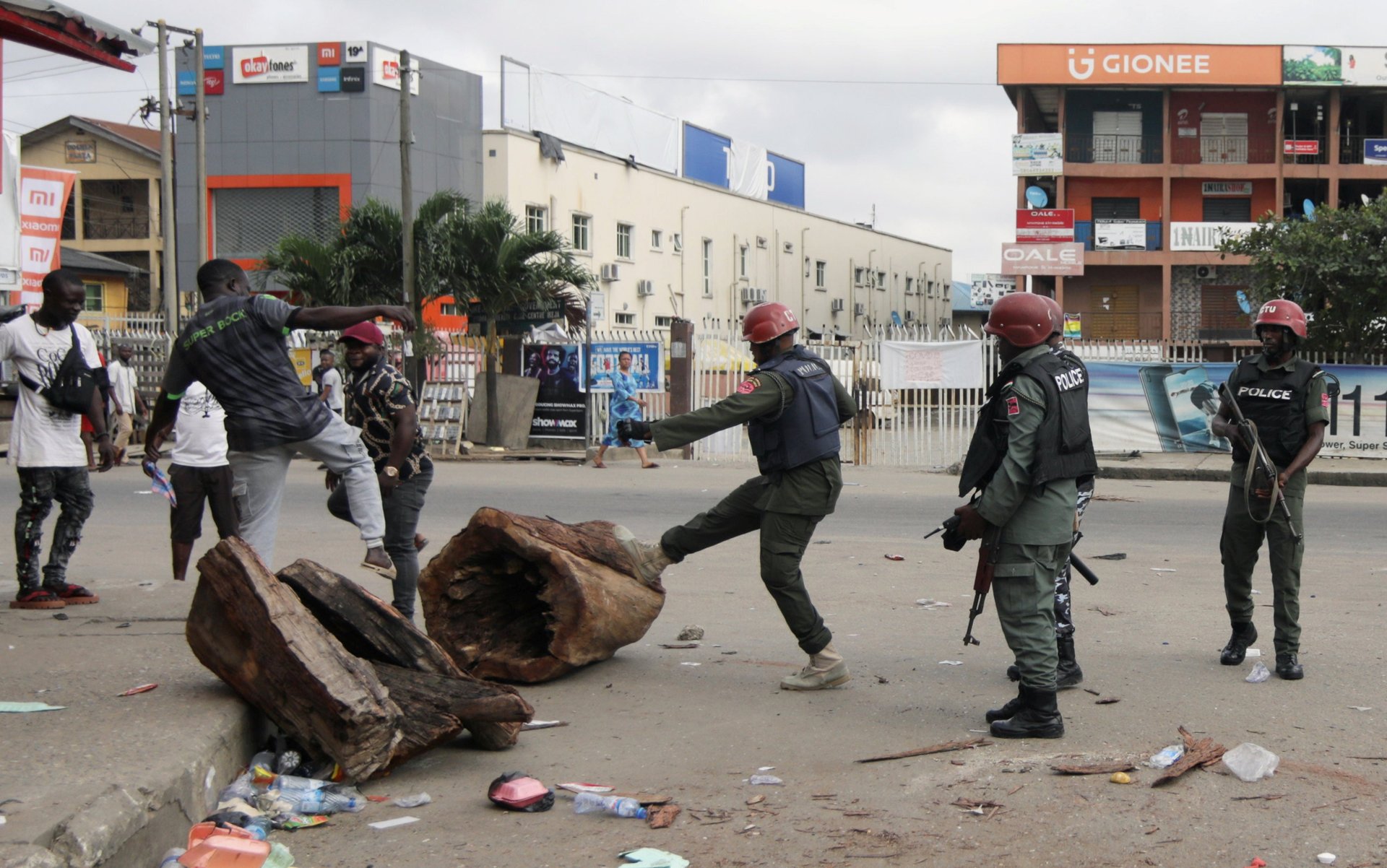A tone-deaf speech by Nigeria’s president Buhari missed a chance for empathy amid national protests
Two weeks after #EndSARS protests against police brutality began, president Muhammadu Buhari finally gave a national address.


Two weeks after #EndSARS protests against police brutality began, president Muhammadu Buhari finally gave a national address.
But what should have been an opportunity to unify the country and, more significantly, empathize with grieving families, proved to be anything but. Keeping with his long-running style as a former military general and dictator, president Buhari’s speech came off instead as high-handed and tough.
Most notably, the president’s speech, which was pre-recorded, made no mention of troubling events at Lekki toll gate in Lagos on Oct. 20 when numerous witnesses say Nigerian soldiers fired into a crowd of peaceful, unarmed protesters who had remained at the toll gate following a hastily announced curfew. The shootings resulted in several injuries and left seven dead, according to Punch, a major local newspaper. The president’s decision to completely omit the Lekki shootings from his speech was in line with the army’s official stance of denial despite a wealth of video footage which contradicts this claim.
President Buhari’s speech also came with a demand—and a thinly veiled threat—for protesters to call off street demonstrations which have seen thousands gather at different locations across the country while using digital tools to drive and sustain momentum.
“In the circumstances, I would like to appeal to protesters to note and take advantage of the various well-thought-out initiatives of this administration designed to make their lives better and more meaningful, and resist the temptation of being used by some subversive elements to cause chaos with the aim of truncating our nascent democracy,” Buhari said.
“For you to do otherwise will amount to undermining national security and the law and order situation. Under no circumstances will this be tolerated,” he added.

The national address sought to amplify the government’s responses to the demands of protesters, including disbanding the rogue special anti-robbery police unit that is infamous for extortion and extra-judicial murder. But recent evidence provides little reason to trust that an announcement of the unit’s disbandment will translate into less harassment for young Nigerians who are often targeted. In fact, the latest announcement is the fourth time the police leadership has placed restrictions on the unit’s operations in four years.
In some ways, that Buhari gave a speech was a novelty in itself. Through his five years in office, Nigerians have mainly heard from the president during national holidays or through interviews granted to foreign media.
Yet, the strongest indictment of the president’s speech is that most young Nigerians expected little from it in the first place. After a successful presidential campaign in 2015 that aimed at endearing the president to younger Nigerians, his administration has since been criticized for being out of touch with and tone-deaf to an increasingly important youth demographic.
“The first thing I wanted to hear yesterday was the president speaking with some empathy. I also expected him to clear up issues like why the military (or men in military uniform) were shooting unarmed civilians…and show solidarity with the people.” says Wale Agbede, a Lagos-based media professional who joined the protests. “[But] my take away from that speech is that the president is cut off from the plight of the ordinary citizens.”
Sign up to the Quartz Africa Weekly Brief here for news and analysis on African business, tech, and innovation in your inbox